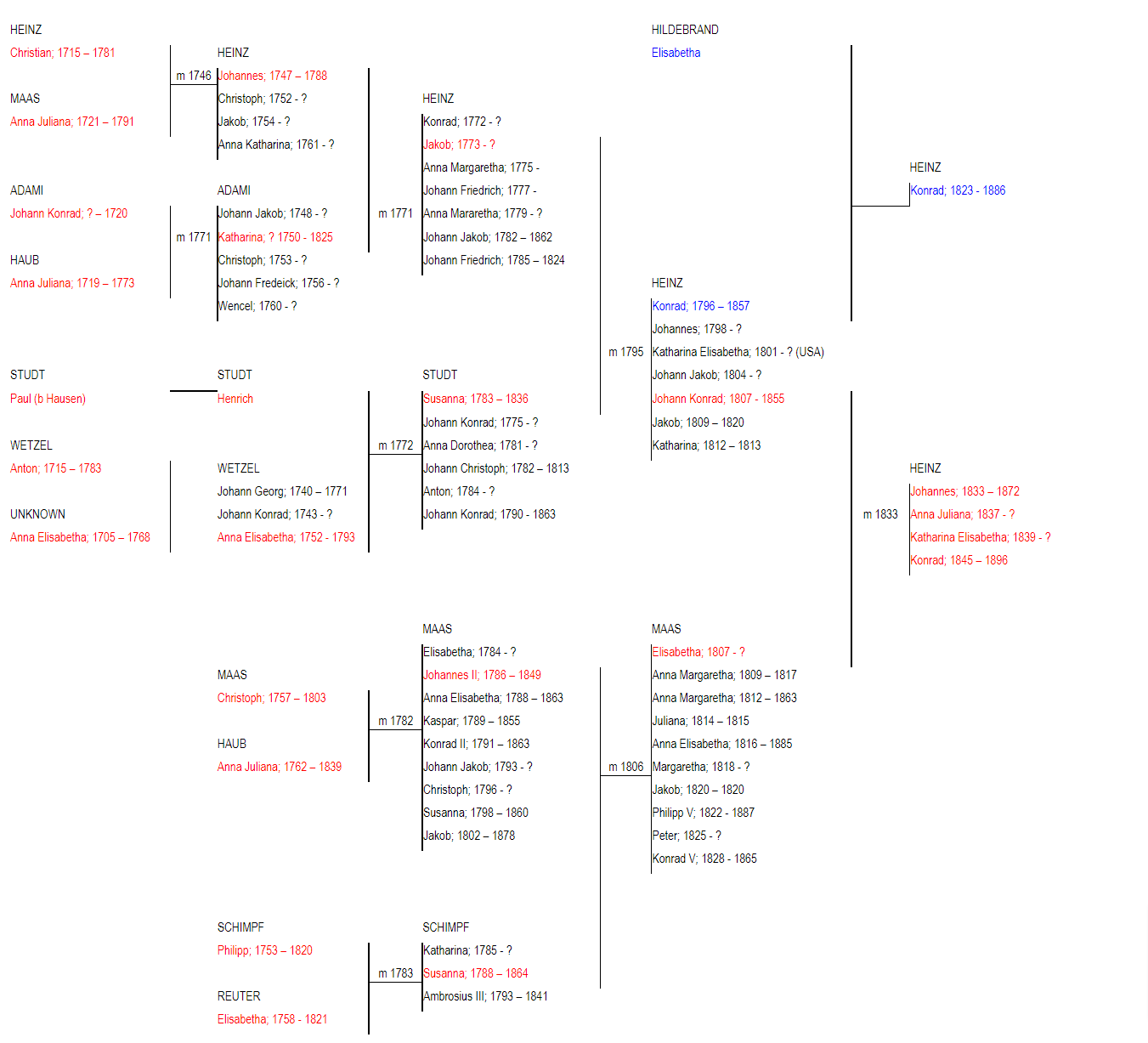Johann Konrad HEINZ 1807-1855
Johann Konrad was in the vanguard of those taking part in the exodus from Nieder-Weisel to Australia in the 1850s. With 22 others from the unhappy town he sailed from Hamburg on 11th October 1854 and spent 19 long weeks in the crowded steerage quarters of the barque “Luise” before getting to Melbourne on 23d February 1855.
Back in Nieder-Weisel his two daughters, Katharina 15 and Anna Juliana 17, prepared to follow when he had arranged accommodation for them. As with other Nieder-Weisel families, Johann Konrad and his wife Elisabetha nee Maas, were anxious to get the girls away from the moral dangers which prevailed in the village.
As the Heinz family had no land holding, there was little future for the boys either. The collapse of the guild system meant that any man, regardless of training, could set up as a craftsman. This caused over-crowding in many trades, including butchering and shoe making, from which the Heinz families had made a livelihood for generations. Faced with this problem, the older son Johannes planned to migrate after marrying his fiancee, Katharina Wilhelm. For the time being the nine year old Konrad would stay with his mother in the village.
In Melbourne, Johann Konrad and his friends heard of the fabulous gold strikes near Mount Alexander; some of them decided to go there, rather than stay in the more favoured destination of Ballarat. This decision had a tragic outcome for Johann Konrad – he became a victim of the primitive hygiene on the crowded diggings at Forest Creek and died there on 14th April 1855, less than fourteen months after his arrival in his prospective homeland.
Johann Konrad Heinz was buried in one of the small cemeteries on the Castlemaine goldfields, several weeks before his 49th birthday. Half a world away, his two daughters were on the first stage of their journey to join him. He left no material evidence of his short sojourn in this country, but his younger son who served a term as Mayor of Bendigo, one of Victoria’s most important provincial towns, in 1895, would perpetuate his name.
View Johann Konrad's Family Chart

